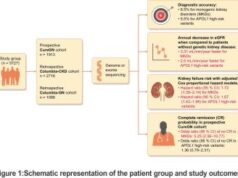Associate Professor of Urban and Regional Planning in Bayero University Kano, Dr Aliyu Barau, has disclosed that 97 per cent of households in Kano state drink contaminated water.
The professor disclosed this at a one-day seminar on drought in Kano city, on Wednesday.
He alleged that most drinking water in the state was contaminated by Escherichia coli (E.coli), a bacterium commonly found in the gut of warm-blooded organisms.
According to him, clear indications had shown that if proactive measures were not taken, Kano may likely experience a serious drought as it did some years back.
While calling on the relevant authorities to take proactive measures to prevent drought in Kano State, Barau said, “Kano’s dry climate means natural water scarcity and perpetual deficit”.
“In some parts of Kano city, the state’s water board can only provide water to 3.2 per cent, while 70.1 per cent use water from wells and boreholes.
“97 per cent of households drink water contaminaqted by Escherichia coli.
“The deliberate abandonment and destruction of environmental heritage, with priceless ecological and social benefits, are among the major causes of drought in the state.
“Environmental heresy is fueled by total lack of responsibility and accountability to past, present and future generations,” he said.
He added that since the 1990s, Kano city had lost over 130 city ponds and dozens of its small and large open spaces.
The University lecturer mentioned some of the solutions to the challenges to include reclaiming and restoring open spaces for increased water percolation below the surface as well as creating and restoring green spaces.
“Smart urban planning and sponge architecture and engineering policymakers should embrace knowledge-based water governance, and the water board should develop water supply clusters for maximum efficiency.
“Government should rehabilitate rural water infrastructure for equitable rural-urban water security, individuals and businesses should reduce water leakages and wastages.
“All should embrace collaborative consumption of water and promote its recycling and also universities should lead the society to address the drought crisis in all its ramifications,” he said.











